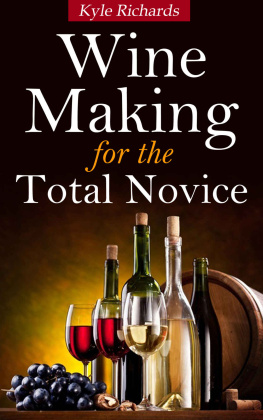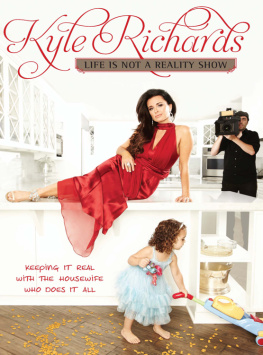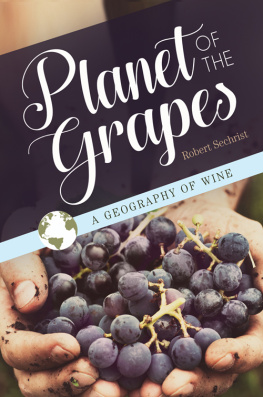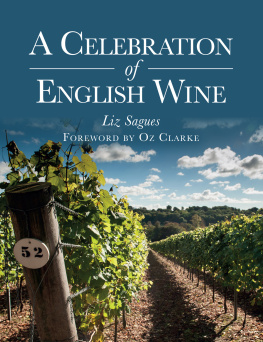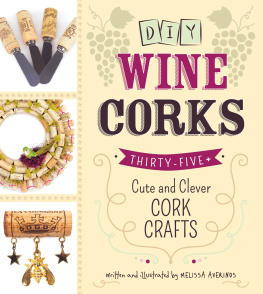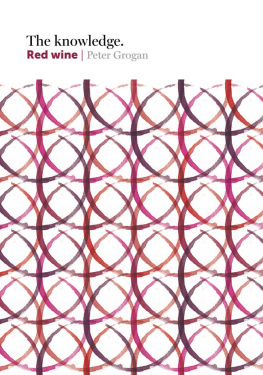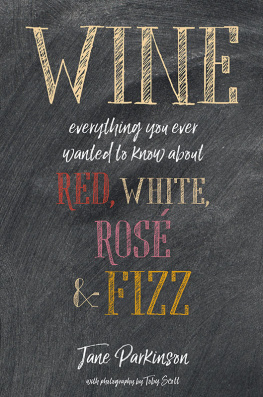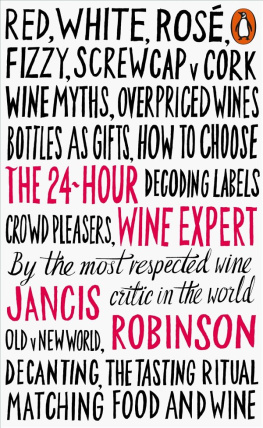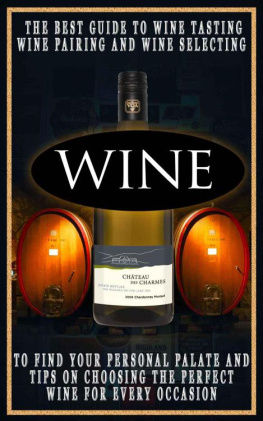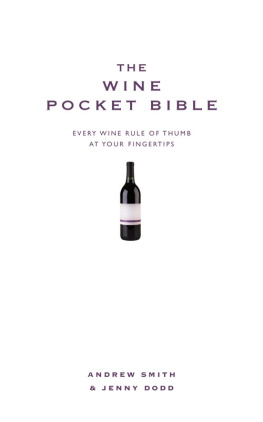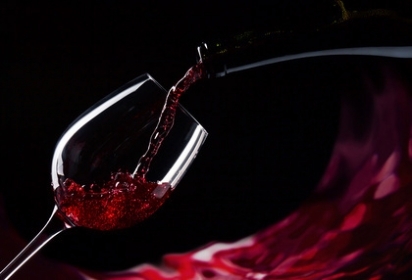Wine Making for the Total Novice
By Kyle Richards
Table of Contents
Have you been curious about how to make wine at home? What kinds of grapes are used? What type of equipment is needed? Is it expensive to get that equipment? Is it a difficult process to do at home successfully?
This e-book is for those who have never made wine before, a total novice to the process. It answers these questions for you in clear, concise steps and walks you through how to make your own first batch of wine.
You will also learn interesting facts and history about wine to help equip you with even more knowledge of this new endeavor.
How exciting this new adventure could be! Imagine serving your guests some great tasting wine that you made yourself, great food to accompany it, and loved ones to enjoy it with you.
Relish the journey, read on.
Either give me more wine or leave me alone. Rumi
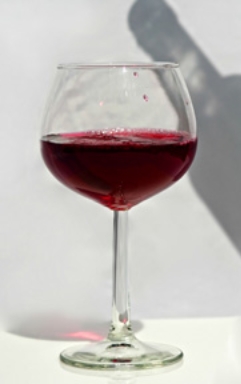
Throughout history, wine has been mans constant companion. In defeat and in victory, in disaster and in glory, wine has served both as a comfort and a trophy. History is seldom told without the mention of wine. Alliances are often celebrated through parties with wine in abundance.
The first indication of it is in circa 7000, in China. Evidence of the use of grapes with fermented rice and honey were unearthed. Then more evidence was found scattered across the Near East and in Europe. The existence of grape skins, stems, seeds, and stalks in an archeological location does not prove the making of wine, hence making it difficult to come up with a conclusive truth as to where production originated.
This fermented juice is important to the countries in the Middle East and essential to civilizations founded by the Greeks and the Romans. Great plantations have risen, and different methods of production and techniques when it comes to flavor, have been a constant challenge and have evolved to become an art in their own right.
Around 6000 BC, wine came to Europe when the Greek civilization spread around the globe. Wine has its place in the center of Greek culture. It was their doctors who first prescribed it to patients.
Viniculture, on the other hand, was improved and evolved into an industry, not to mention a science, when the Romans began to classify grapes in different categories based on factors such as variety, color, and soil preferences. Pruning, irrigation, and fertilization were given more attention, which resulted in harvests being maximized and increased.
The first century marks the export era for wines. Rome, being a strong empire, exported thousands of barrels in different ports around the globe. It is even believed that The Roman era was the first to use glass bottles as containers. France gained dominance in the market, and imports were forbidden. Many wine historians thank the monastic communities for the preservation and cultivation of the various techniques that are still applied today. Wine is also an important part in most of their religious rites.
The 14th and the 15th centuries were an open door for Frances competitors in the export market since the trade between England and France was cut off due to political reasons.
Further quests for territory and dominion brought wine to South America and South Africa in the 1500s and 1600s. During this period, efforts to grow vineyards along the Atlantic and Gulf Coasts of North America were made with no success.
The earliest civilizations were founded in places where water was abundant. Economic growth and military power are dependent on natural resources; thus communities with ample supplies of basic necessities were able to build strong empires and wealthy nations.
It can be argued, however, that even though most civilizations are rooted in fountains and streams of water, wine was the necessary tool by which these civilizations were built.
Alliances were formed with wines and pacts. Royalty was measured in the abundance of a banquet and the quality of the wine. If you want to impress a ruler, a good wine is a good place to start.
Wine has been a hard workers treat after a day of hard labor. An indispensable item in an important family dinner, wine is one of the highlights of a celebration, whether simple or grand.
The growth of cultures can be attributed to wine, too. From a friendly conversation of everyday things to matters of passion for a cause, wine has served as the springboard of beliefs and traditions. It is enjoyed by the many philosophers and even the worlds modern thinkers, endorsed by artists and creative minds.
Plagues and political obstacles were not able to bring the wine industry down. With many risks, whether for the love of wine or love of money, taken by those who are known today as wine heroes, winemaking continues to grow both as a business opportunity and a pleasurable hobby.
There has never been a time when more people have consumed wine in great quantities and diversity. Production and consumption has greatly increased from the time of the European expansion up to todays countless acres of vineyards with specialty wines.
Technology has made it easier for wine producers to try different methods, and yet the same has made the field extremely competitive, as the number of wine enthusiasts has increased and the consumers tastes have become more sophisticated and more diverse.
Being one of the worlds oldest beverages that still exists today and having become a symbol of status and affluence, wine has a lot of stories up its sleeves. Here is a rundown of some of the most interesting facts gathered about this drink called wine.
The Chinese, as it turns out, are not only fond of tea, but also of wine. They are the biggest wine consumers. It was, however, in Germany that the oldest bottle of wine was unearthed. The bottle, which was dug up in 1867, was dated around 325 A.D.
The method of wine making was preserved by monks during the time when the whole industry of alcoholic beverages was at risk. Another fact of interest about wines is their names. For a beginner, the names might be a bit hard to pronounce in many cases. Names, as it turns out, indicate the location of the production and the variety of grapes used.
Some people might not like wine, or any alcoholic beverages for that matter. But believe it or not, there is a term for people who are afraid of wine. This fear is called oenophobia, the fear of wine. Enologists are wine chemists who analyze samples of wine and advise winemakers. Enology is the science of winemaking.
There was a time when wine was almost wiped out by nature. Phylloxera, a root parasite, was one of the biggest threats that the wine industry has faced. It put an axe to the roots of many vineyards around that time.
The phrase drinking to ones health was rooted in the Greek custom in which the host of a dinner would take the first sip of wine to assure guests that the wine was not poisoned. Romans traditionally drop a piece of toasted bread into each glass of wine to prevent effects of too much acidity.
A mature wines smell is called bouquet, while aroma is the term for the smell of a young wine. Women, having better smelling abilities, are better wine tasters, at least according to some research.
The color of the wine is determined through the grape skins. The absence or presence of skin during the fermentation dictates the products color. Generally wine will be red when fermented with skin and white when fermented without the skin.

